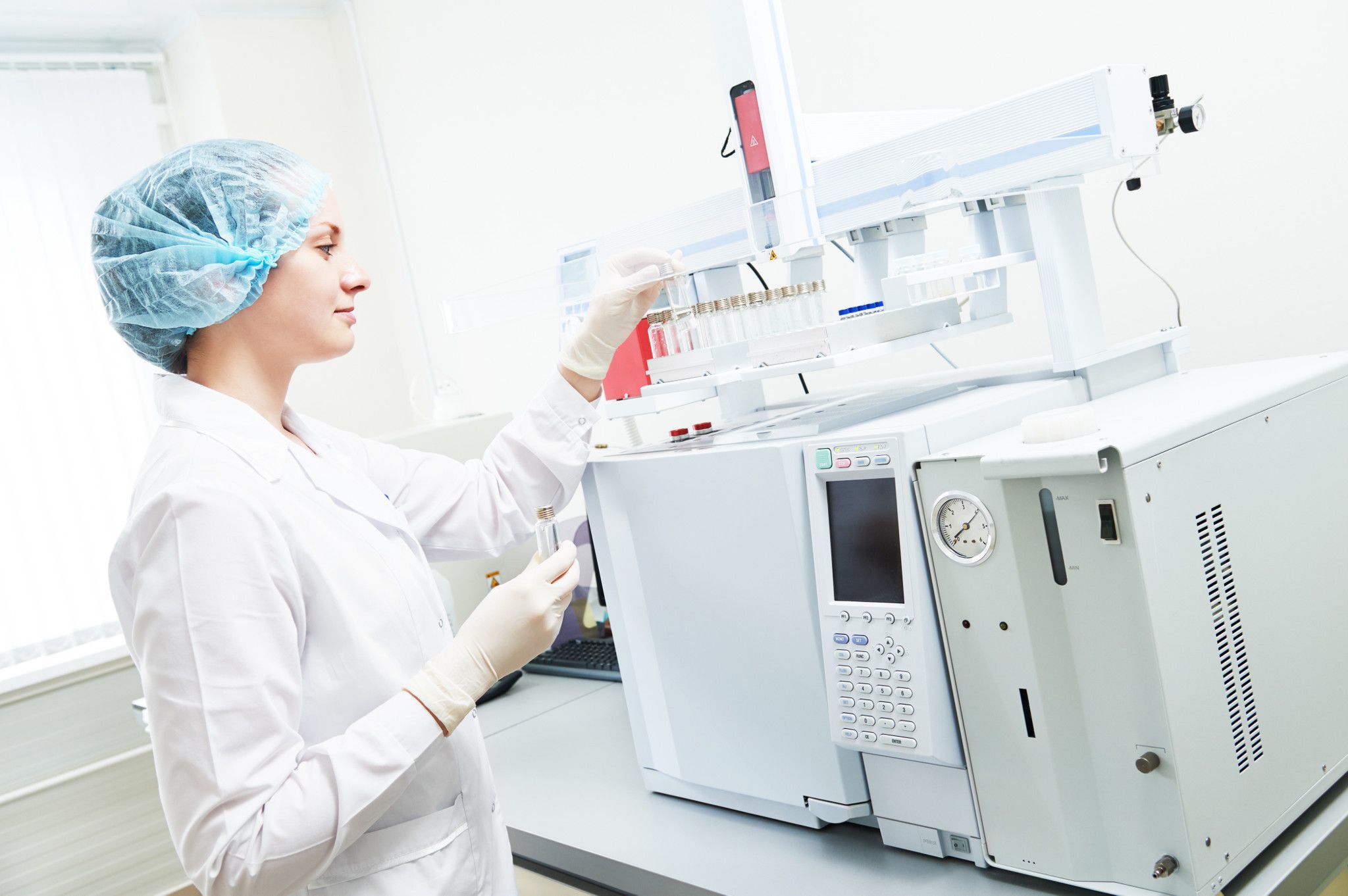How You Can Improve Quality and Efficiency with Internal Audits
This article looks at how your company can improve both quality and efficiency by conducting effective internal audits. We also highlight a recent webinar from NSF that you can watch, or share with your colleagues, that looks at ways to ensure successful internal audit.
Internal audits play a crucial role in the pharmaceutical industry, serving as valuable tools for ensuring compliance, identifying areas for improvement, and protecting patients. Despite their importance, internal audits are often seen as a mere checkbox exercise, lacking the depth and value they should provide.
Let's delve into the key elements that can transform internal audits from routine procedures into valuable assets for pharmaceutical companies.
Watch: How To Ensure Successful Internal Audits
Watch: How To Ensure Successful Internal Audits
The Need for Effective Internal Audits
It is widely acknowledged that we learn from our mistakes, and internal audits offer an opportunity to identify areas for improvement and drive positive change. However, many companies approach internal audits with a repetitive mindset, conducting the same audits year after year without recognizing underlying trends or addressing root causes. An approach like this often leads to frustration and resentment from auditors and auditees alike, resulting in a lack of enthusiasm and limited value derived from the audit process.
To ensure the effectiveness of internal audits, it is essential to view them as more than just a regulatory requirement. Internal audits should be seen to add value to the pharmaceutical quality system (PQS), protect patients, and drive continuous improvement. By embracing this perspective, companies can unlock the true potential of internal audits and reap the benefits they offer.
What Are The Most Frequent Challenges in Internal Auditing?
Internal audits can present challenges to companies. Over many years, NSF experts have spoken with representatives from many companies and helped them to address the issues presented by internal audits. These are the four most frequent challenges that our experts have identified during many discussions with people in the pharmaceutical industry.
Repetitive Audit Schedules
One common pitfall is conducting the same audits year after year, resulting in a lack of fresh perspective and recurring findings. To address this, companies should adopt a risk-based approach to audit scheduling. Instead of following a predetermined checklist, the audit schedule should be tailored to address the specific risks and priorities of the organization. By focusing on areas of high risk and relevance, internal audits can provide more meaningful insights and drive targeted improvements.
Limited Time and Resources
Auditors often find themselves stretched thin, juggling multiple responsibilities alongside their auditing duties. This limited time and resources can hinder the effectiveness of internal audits. To address this challenge, companies should allocate dedicated time for auditors to perform their duties without distractions. Adequate resources should also be allocated to support the audit process, ensuring auditors have the necessary tools and guidance to conduct thorough and impactful audits.
Look Beyond Quality Assurance
While QA professionals bring valuable expertise, a broader range of auditors can provide fresh perspectives and identify different insights. Consider involving auditors from various departments and disciplines to bring diverse perspectives and enhance the overall effectiveness of internal audits.
Addressing Deficiencies with Collaboration
When auditors uncover deficiencies, it is crucial to foster a collaborative and supportive environment for addressing these issues. Auditees should not view audits as a burden or an opportunity for blame but rather as an opportunity to improve processes and ensure compliance. Effective communication and collaboration between auditors and auditees can lead to a more constructive and positive audit experience, driving meaningful change within the organization.
5 Factors To Maximize the Value of Internal Audits
To ensure internal audits deliver maximum value, there are five critical factors that need to be considered:
Consider Developing A Risk-Based Audit Scheduling
Rather than following a rigid audit schedule, companies should adopt a risk-based approach. This involves identifying and prioritizing areas of high risk and relevance to the organization. By focusing on critical processes, systems, and departments, internal audits can provide targeted insights and drive improvements where they are most needed.
Utilizing Metrics and Data
Metrics and data play a crucial role in identifying areas for improvement and driving meaningful change. By analyzing key performance indicators, such as complaints, deviations, and recalls, companies can gain valuable insights into potential risks and areas of non-compliance. These metrics should inform the audit schedule and guide auditors in their assessments.Conducting Holistic Audits
Internal audits should not be limited to department-specific assessments. Instead, they should encompass a holistic view of the organization's quality management system. By examining processes and systems across multiple departments and functions, internal audits can identify inefficiencies, misalignments, and opportunities for standardization. This comprehensive approach ensures that audits go beyond surface-level issues and address the underlying factors that impact overall compliance and quality.Training and Development of Auditors
To conduct effective audits, auditors must have sufficient training and understanding of the regulations. To do this, companies must invest in training for auditors.
We offer many training courses for auditors including the CQI & IRCA certified training listed below.
Training: GMP PQS Lead Auditor (CQI & IRCA Certified Training) from NSF
Follow-Up and Continuous Improvement
The true value of internal audits lies in their ability to drive continuous improvement. It is crucial to follow up on audit findings and ensure that corrective and preventive actions (CAPAs) are implemented effectively. Auditors should collaborate with auditees to develop meaningful CAPAs that address root causes and drive sustained improvements. By monitoring the effectiveness of CAPAs and tracking trends over time, companies can ensure that internal audits result in positive change and contribute to the overall quality management system.
Steps You Can Take To Ensure CAPA Effectiveness With the CAPA Hierarchy
We Can Help
Internal audits are not just a regulatory requirement; they are valuable tools for driving compliance, identifying areas for improvement, and protecting patients in the pharmaceutical industry. By adopting a risk-based approach, utilizing metrics, conducting holistic audits, investing in auditor training, and emphasizing follow-up and continuous improvement, companies can unlock the true value of internal audits. It is crucial to view internal audits as opportunities for growth and collaboration, rather than burdensome tasks. With the right mindset and approach, internal audits can be transformative, enabling companies to enhance their quality management systems and deliver safe and effective pharmaceutical products to patients.
Take control of your compliance and quality systems today! Complete the form below to arrange a call with a member of our expert team who will be able to help you with audit advice or training for your team.
Resources
Ready to Begin the Process?
Contact us with questions or to receive a quote.
How NSF Can Help You
Get in touch to find out how we can help you and your business thrive.

What’s New with NSF

NSF Shanghai Named Critical Site for NSF/ANSI 455 and NSF/ANSI 173 by ANSI National Accreditation Board
July 26, 2024
NSF Takes Center Stage at NEHA Annual Education Conference
July 25, 2024
NSF Asia Pacific Showcases Hospitality Solutions at THAIFEX HOREC Asia 2024 in Bangkok, Thailand
July 4, 2024


